
Flagging DBT images that may warrant a more expedited review, the CogNet AI-MT+ platform can reportedly be integrated into existing IT systems to facilitate workflow efficiencies for radiologists.
Senior Editor, Diagnostic Imaging

Flagging DBT images that may warrant a more expedited review, the CogNet AI-MT+ platform can reportedly be integrated into existing IT systems to facilitate workflow efficiencies for radiologists.

In a recent interview from the International Stroke Conference, Jeremy Heit, M.D., Ph.D., discussed new research suggesting that AI may offer better assessment than neuroradiologists of aneurysm growth on computed tomography or magnetic resonance angiography scans.

The Ascent3T Neonatal Magnetic Resonance Imaging System is reportedly the first high-field 3T system geared to neonatal applications.

Wendie Berg, M.D., Stamatia Destounis, M.D., and Amy Patel, M.D., share their thoughts and perspectives on key findings from the Lancet mammography study on AI and interval breast cancer, and how they have incorporated AI into their practices.

A high SUVmean on PSMA PET imaging was associated with 95 more days of mean progression-free survival (PFS) in contrast to those with a low median SUVmean, according to a new study of patients with mCRPC treated with (225Ac)Ac-PSMA-I&T.

The CT-based RevealAI-Lung software reportedly offers a Malignancy Similarity Index score to facilitate evaluation of incidental lung nodules.

In addition to significantly reduced radiation dosing in comparison to energy-integrating detector CT (EID-CT), photon-counting CT provided higher detection of enhancement-related malignant features, according to new prospective research involving 200 patients with lung cancer.

The Brainomix 360 Stroke Next Generation software reportedly includes automated assessment of net water uptake (NWU), a CT-based biomarker that may improve risk stratification for patients with severe strokes.

In a recent interview, Amy Patel, M.D., discussed key targets in legislation for breast imaging in 2026 and offered advice for breast radiologists seeking to get more involved in advocacy.

The Allia Moveo C-arm platform reportedly offers ergonomic maneuverability, enhanced artifact reduction and flexibility with the use of cone-beam CT.

Catch up on the top radiology content of the past week.

In a comparative study involving over 105,000 women, researchers found the use of adjunctive AI for mammography triage resulted in a 16 percent lower rate of invasive interval cancers in comparison to double reading by radiologists without AI.

The Biograph One PET/MRI system may facilitate accelerated scan times, improved visualization and more efficient assessments of theranostic approaches for patients with oncologic and neurological diseases.

In a new podcast episode, Kernesha Weatherly, DHA, emphasized the importance of communication with radiologists, ordering providers and patients to identify challenges with follow-up of incidental imaging findings, and how AI helped bolster data and “line of sight” in these cases at Ochsner Health.

Employing AI-powered automation, the MIM LesionID™ Pro reportedly bolsters the efficiency of whole-body tumor burden analysis with PSMA PET/CT and SPECT/CT.
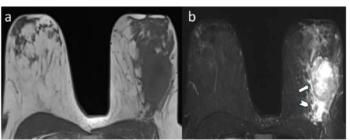
For young women with breast cancer, peritumoral edema on pre-op breast MRI was associated with over a 3.6-fold higher likelihood for reduced disease-free survival, according to new research.

Employing latent profile analysis (LPA) to help assess body fat distribution patterns, researchers found that a pancreatic-predominant profile with elevated proton density fat fraction derived from MRI was associated with extensive gray matter atrophy and cognitive decline.
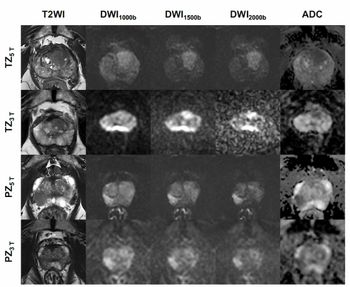
The use of 5T prostate MRI offered significantly higher signal-to-noise ratio (SNR) than 3T prostate MRI as well as enhanced delineation with T2-weighted and diffusion-weighted imaging, according to newly published comparative research.

Catch up on the top radiology content of the past week.

Sharing his insights as well as findings from recent research, Mina Makary, M.D., discussed pertinent challenges with diversity and resident attrition rates in interventional radiology and possible approaches to address these issues.
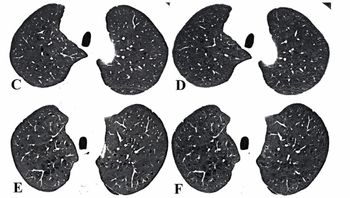
A prospective research comparison of ultra-low-dose (ULD) PCCT and low-dose (LD) PCCT protocols yielded comparable image quality and strong agreement on emphysema severity assessments with ULD PCCT offering significantly reduced radiation dosing.

Employing low pressure ultrasound treatment to break up kidney stones, the Break Wave lithotripsy device offers a non-invasive, anesthesia-free alternative
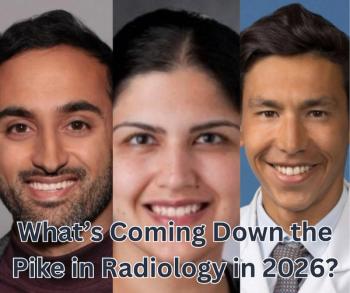
In recent interviews, Rajesh Bhayana, M.D., Manisha Bahl, M.D., and Jeremie Calais, M.D., Ph.D., shared their thoughts on agentic AI, key directions in breast imaging research and emerging trends with prostate cancer theranostics in 2026.
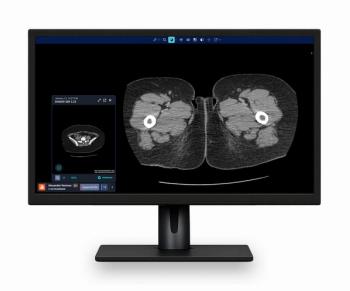
Geared toward facilitating earlier detection and efficiencies in emergency department workflow, the AI triage software reportedly has 11 newly cleared indications.

In a prospective comparison with prior criteria for evaluating hepatocellular carcinoma surveillance, the American Association for the Study of Liver Diseases (AASLD) version 2023 system offered significantly higher sensitivity.

In a recent interview, Manisha Bahl, M.D., discussed recent research demonstrating a significant decline in the sensitivity of digital breast tomosynthesis (DBT) with increasing breast density as well as challenges in the utilization of supplemental imaging for women with dense breasts.
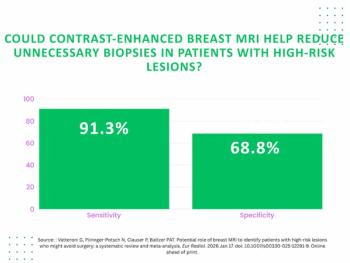
In a seven study meta-analysis with a total of 493 cases involving high-risk breast lesions, researchers found that contrast-enhanced breast MRI did not miss any cases of invasive breast cancer.

In a recent interview, David Yankelevitz, M.D., discussed the recent FDA clearance of the AI-CVD multisystem screening software and the ongoing evolution of incorporating computed tomography into personalized screening and risk assessments.
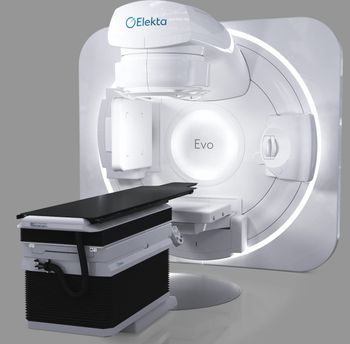
Incorporating AI to reduce artifacts and bolster soft tissue contrast, the Elekta Evo CT-Linac system reportedly improves detection of tumors and organs-at-risk.

Catch up on the top radiology content of the past week.
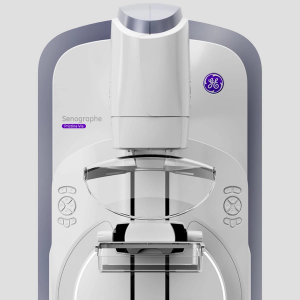
Published: November 27th 2024 | Updated: December 4th 2024

Published: October 15th 2024 | Updated: October 16th 2024
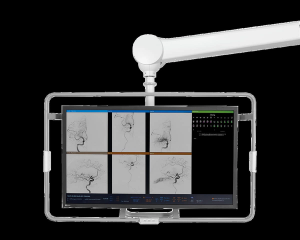
Published: May 6th 2024 | Updated: May 8th 2024

Published: April 22nd 2022 | Updated:

Published: March 1st 2023 | Updated:
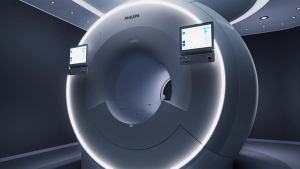
Published: May 9th 2022 | Updated: